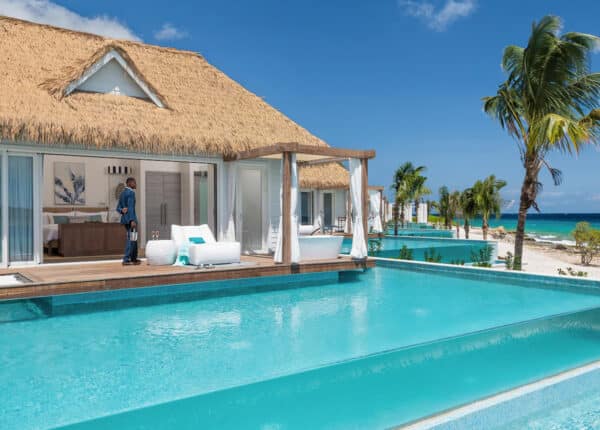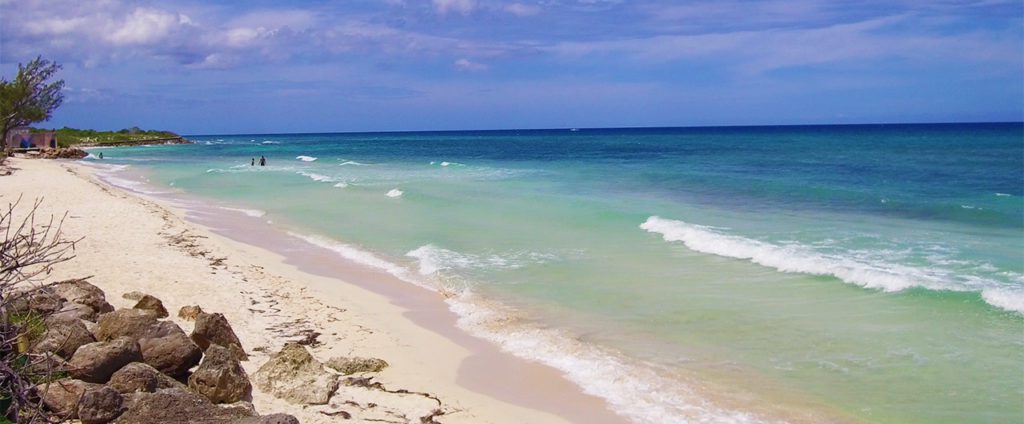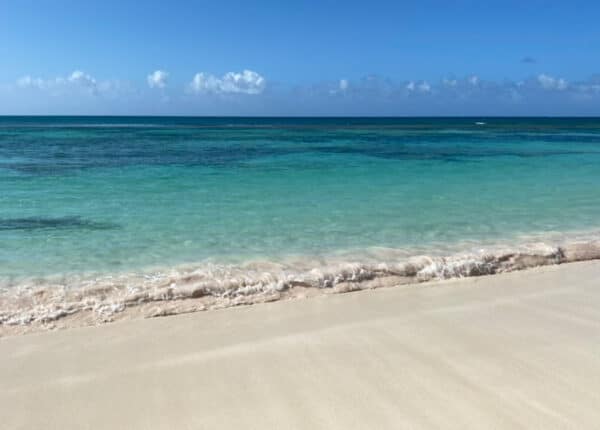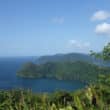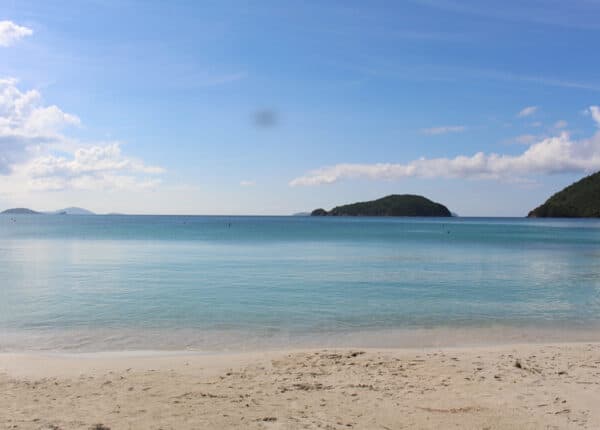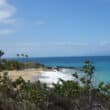How Jamaica Is Changing the Global Conversation on Sustainable Tourism
By Alexander Britell and Guy Britton
Tourism isn’t just the beating heart of the Caribbean economy — it’s one of the largest economic sectors on earth. And in an age of increasing global challenges, that means the continued sustainability — and resilience — of tourism is paramount.
In an effort to begin to redefine the conversation on these issues, Jamaica put itself at the forefront last month, opening the new Global Tourism Resilience and Crisis Management Center, set at the University of the West Indies in Kingston.
The aim, Jamaica Tourism Minister Edmund Bartlett says, is to help educate and inform destinations around the world on how to “rethink” tourism amid increasing global disruptions, from climate change to pandemics to heretofore unforeseen crises — how to study and track new ways to address and recover from them, and how to use information to respond more quickly to them.
But at its heart, “tourism resilience” is about going beyond “sustainable” tourism. It’s not just about sustaining, Bartlett says. It’s about “thriving.”
To learn more, Caribbean Journal talked to Bartlett about the new center and how Jamaica is changing the global conversation on this all-important issue.
At its heart, what is the purpose of this new center?
The context of course is that the center was born out of the idea of creating a single reference point for dealing with global disruptions and assisting countries, particularly vulnerable tourism destinations, to recover from these disruptions and to recover quickly.
It’s about beginning to track these disruptions, and then being able to mitigate against them when they arrive and to manage them and to recover — but, more so, to build back quickly after.
The whole business of the capacity to track these disruptions, whether seismic or hurricanes, cyber-crimes, economic depression, downturns, political disruptions, pandemics and epidemics — to build that capacity is very important and we’ve found that when we did an assessment of the capacities across the world, we found that smaller countries that are the most tourism dependent are the least able to respond and to overcome these disruptions.
The example we had was, of course, our last two hurricanes in the Caribbean, when the GDP of one country was literally destroyed, wiped out completely — some 228 percent of the country’s GDP was lost. in the case of another island, in the case of Puerto Rico, which although aligned with the richest nation on earth, suffered 60 percent damage and ended up with a very protracted period of recovery.
So creating a single repository of information, data, best practices and communication to deal with these disruptions when they hit tourism destinations is absolutely imperative.
How do you define tourism resilience?
Tourism resilience really is the capacity of a country, through tourism, to enable recovery and thriving after disruptions of various sorts.
It’s the ability to innovate, to respond quickly, to be nimble. But the critical element is about thriving — and this is where it steps just slightly ahead of sustainability. We build the capacity to sustain the economy through maintaining good environmental practices and good husbandry of ecosystems, where you build resilience by creating the value added, the ability to go one step further.
It’s, yes, about being sustainable — but it’s then about being able to thrive and create more wealth.
That sounds a bit like Nassim Nicholas Taleb’s concept of “antifragility,” of not just being able to withstand disorder and disruption, but actually becoming stronger because of them, actually gaining from disorder.
Exactly. It’s antifragility — so you recover, but you must thrive after. It’s about the capacity to not only retain but to get stronger and to be able to better withstand the future shocks if they come.
What does it mean to have this center in Jamaica?
It’s important for our ability to establish Jamaica as one which offers destination assurance.
That Jamaica offers a sense of security to visitors who come here, because they know that if disruptions hit at whatever time, the country has the capacity to deal with them, and that their own safety will be assured.
We’re also building a “resilience barometer,” which will be the basis of measuring a level of resilience that a country has. That will help to create the environment that, “If I come to this destination and anything happens, I will be alright.”
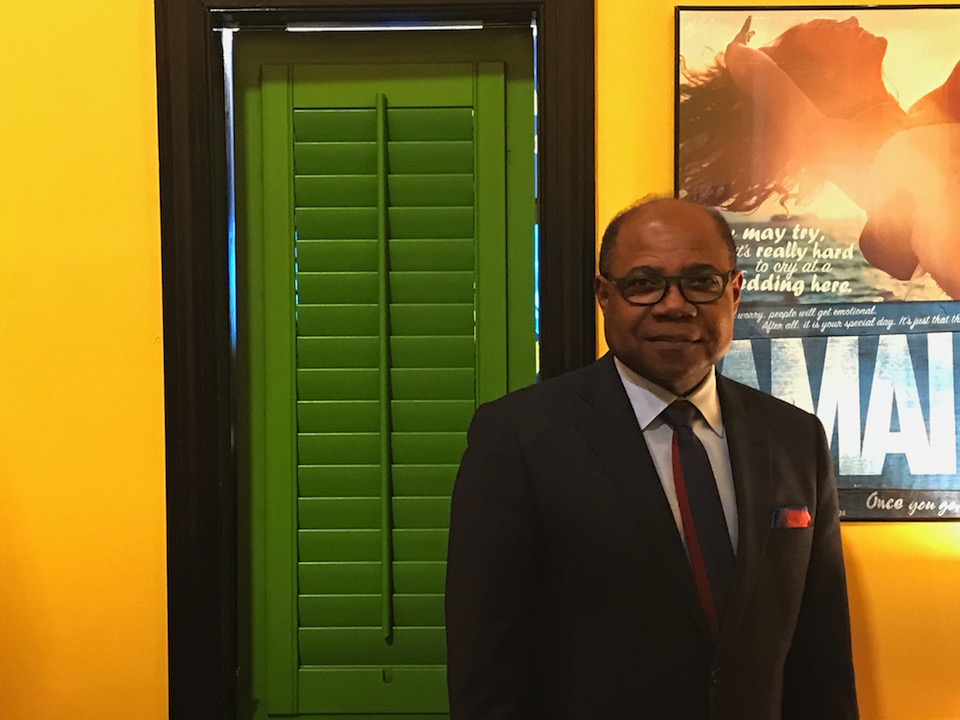
Jamaica Tourism Minister Edmund Bartlett.
What does it mean for the Caribbean at large?
This also establishes the region as a thought center, as a leader in innovation and in global thinking so that people come to the caribbean to participate in these kinds of intellectual activities and research and development.
Because this center would also be a center of academic activity, it will become a reference point for think tanks and all sorts of intellectual activity relating to resilience and crisis management.
It’s positioning the Caribbean and Jamaica as a thought leader in the tourism sector, like the Davos of tourism. In the same way that people look to Davos every year for leadership, inspiration and for generating academic rigor, we would position the Caribbean and Jamaica for this kind of response.
What kind of reception have you gotten from within the Caribbean?
It’s been excellent. The Caribbean Tourism Organization is represented on the board of the center, and will participate in the board meetings in Berlin.
The private sector also has been coming on board — the Florida-Caribbean Cruise Association, for one, is involved through the Cruise Lines International Association. We have talked to airlines. Jetblue has started discussions, with the issue of airport security foremost on their minds, along with building resilience at airports in the region. The Petroleum Group in the Caribbean, i’ve met them and discussed their participation, and the Caribbean Insurance Group, we’ve met and they’ve given their commitment. The UAE have also pledged tourism support.
So it’s a growing entity arrangement that we’re having and we’re excited that almost everybody who hears about the center and what we intend to do are very warm to it and in many cases support whether material or financial sense.
What are the next steps for the center?
We’ve just completed a business plan, and the program of work for the center, which has been established at the University of the West Indies – Mona.
We are now building out the physical facilities, and technical leaders and officers of the center. There are four major steps: one is to do an academic journal; the second is to develop a compendium of best practices to be published and made available to vulnerable states that are tourism dependent; the third is to create the barometer that i mentioned; the fourth is to establish a chair, an academic chair at the UWI on resilience and innovation, which is a critical part of the academic rigor that must be brought to this whole process.
The last thing we must do is build a communications capability, because the center must be a repository of strong communication to enable messaging that is clear and coherent, and gives information on a real time basis — and to be geo-specific, so people know where it’s happening.
smaller countries that are the most tourism dependent are the least able to respond and to overcome these disruptions”
That was an issue during Hurricane Irma, for example.
Yes, that also means helping to identify and not confuse countries because of similarity of names, for example, something we dealt with during the recent hurricanes, when everyone was confusing Barbados and Bermuda when it was taking place in Barbuda.
There’s a geographical ignorance out there that exists that we have to deal with.
Even in Jamaica we were being called with great commiseration, and people didn’t understand this is an archipelago of dozens of islands.
So during global disruptions, information is very important. The goal of this center in that regard is to free us from those kinds of deficits, to be able to freely and readily pass information about events.
The business of building out that capability is critical.
We have a huge task ahead, with a very diverse and complex area of activity. But placed as it is in the center of academia, we think it is well positioned to be able to tap into all of those critical possibilities.
